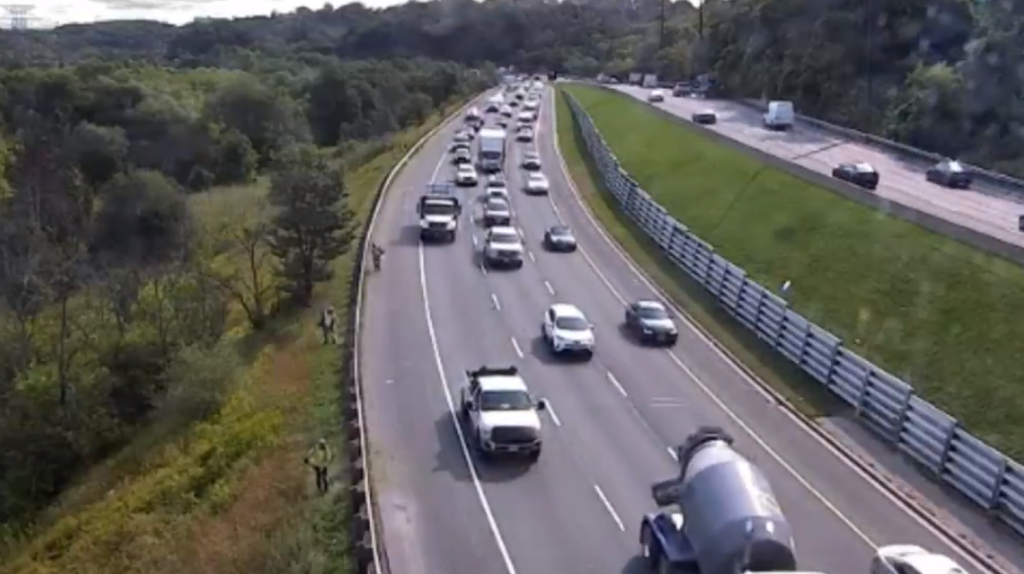Screenwriter Elan Mastai on his buzzy debut novel ‘All Our Wrong Todays’
Posted February 6, 2017 1:16 pm.
Last Updated February 6, 2017 5:40 pm.
This article is more than 5 years old.
TORONTO – As he crafted his debut novel about a time-travelling man who winds up in an alternate reality, Canadian screenwriter Elan Mastai started to feel like the protagonist.
“All Our Wrong Todays” was meant to be just a creative challenge for himself after he wrote the film “The F Word” (a.k.a. “What If”), a romantic comedy that starred Daniel Radcliffe and Zoe Kazan and earned Mastai a Canadian Screen Award.
He didn’t have a publishing deal or even a literary agent, and he didn’t tell anyone he was writing the book until he’d finished the first draft.
But within 24 hours of sending out the manuscript, the Vancouver-born, Toronto-based scribe was unexpectedly fielding offers. And within three weeks, he’d become an international publishing sensation — selling the U.S. rights for seven figures, the translation rights to 25 countries, and the movie rights to Paramount Pictures.
Mastai is now writing the screenplay and former Sony Pictures co-chair Amy Pascal is producing.
“Like (protagonist) Tom, I felt like I had woken up in this crazy, alternate reality,” Mastai said in a recent interview at the Penguin Random House office in Toronto.
“None of it was what I was expecting. I was hoping to find a publisher that would like the book and would want to bring it to readers and that would fall in love with it as much as I did.
“I never anticipated the level of interest.”
Mastai also didn’t anticipate how poignant a story about suddenly finding oneself in an alternate reality would become in this era of political upheaval.
“All Our Wrong Todays” (on sale Tuesday) is the story of Tom Barren, a hapless, 32-year-old son of a teleportation genius who hails from a techno-utopia version of 2016 with flying cars and moving sidewalks.
When he makes a rash decision to enter his father’s time machine and go back to the seminal 1965 moment that changed the world, he makes a grave error and winds up in an alternate universe resembling the 2016 of today, which he initially perceives to be a dystopian wasteland.
As he gets to know the different versions of himself and his loved ones, he has to decide whether to keep things as is or go back.
“I think there’s a lot of people who woke up after the last (U.S.) election that suddenly feel like they’re living in a new reality and that feeling hasn’t subsided; if anything, it’s accelerated,” said Mastai.
“When I wrote the book obviously it was before Trump and Brexit. I was definitely writing about things that I felt were happening in the culture or were bubbling, like the pot was getting hotter and hotter even if they hadn’t quite bubbled over.”
Mastai said he came to love science and time-travel stories through his grandfather, a chemist who had an extensive sci-fi collection.
Inspired by writers including Kurt Vonnegut, who is referenced in the novel, he wanted to explore the idea that the future imagined in the 1950s hadn’t come true.
But, “this isn’t hard sci-fi,” he said. “I think of it as literary fiction with a science fiction frame to it.”
Overall, the book explores changing identities and the unintended consequences of new technologies and radical social change.
“I thought about somebody from my grandfather’s generation landing in our 2016 and being like, ‘What happened? This isn’t what we planned,'” said Mastai.
“Obviously dystopian fiction is a big thing right now, whether it’s (young adult) novels, movies, TV. We imagine these dystopian futures but I, in that kind of Kurt Vonnegut way, wanted to look at our world and say: ‘Well, who might come here and think of this, the real world, as the dystopia where everything has gone wrong?'”










